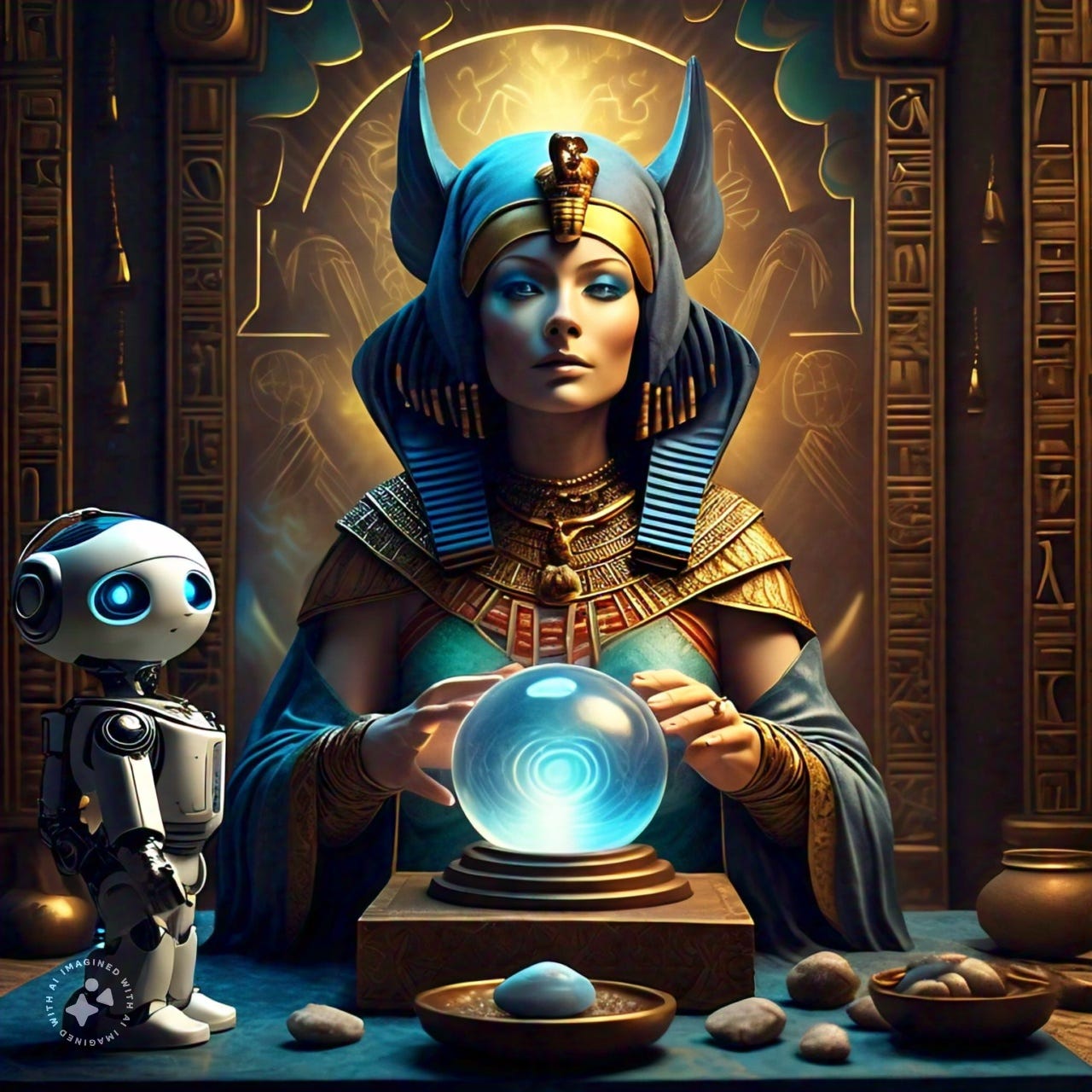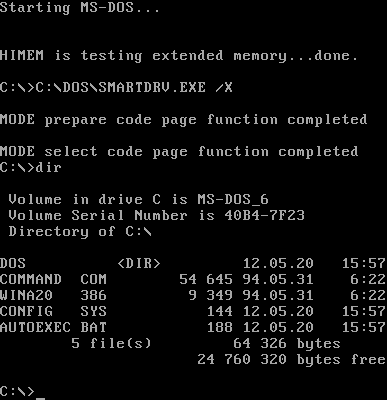Predicting the AI winners: lessons learned from the GUI days

Trying to predict anything is almost always a bad idea, especially if the topic is AI. I certainly do not have the foresight or bravado to be able to claim that whatever I posit here is nothing more than my own opinion. With that caveat, let’s dive in.
We’ve been living with AI, specifically LLMs & GenAI, for under two years now, and there’s no mistake that it’s impact has been profound. ChatGPT, and broadly speaking GenAI, are at times simply magical. The ability to converse with a machine - even with the occasional hallucination - is profound. Profoundness and impact aside, we’ve also seen a significant number of AI startups that are seemingly able to raise huge sums of money at frothy valuations. The rationale, at least my own rationalization of this, is the difficulty in predicting the winners and losers in this space, hence investing is better than sitting idle, lest you miss out on a massive winner.
When attempting to predict how this space will evolve, I somehow default to a very ancient analogy: the graphical user interface (GUI). Before the emergence of the GUI in the early 80s the most common manner to interact with a computer was via the keyboard. It was all text-based, with the main interface a terminal window like the one below for MS-DOS. The Apple Lisa was AFAIK the first commercial computer to be sold, in 1983, supporting a GUI and mouse.
The emergence of the GUI changed the human-to-computer interaction quite dramatically. I remember the very first time I could interact with a computer by pointing a mouse and clicking versus typing. Productivity increased and a new breed of applications, like word processors and others, gained immense popularity.
I offer the GUI, arguably as a very simple, analogy, because the impact of AI is most profound in the human-to-computer interaction. That makes AI somewhat similar to the GUIs impact, although I suspect that AI will have a larger impact. Consider, that we can now “converse” with a machine. Not only can I ask LLMs like ChatGPT a question, but I can have a narrative with it. That is quite profound. This narrative between a human and machine is novel, but the interactions now include text, images, sounds and even videos. The narrative now spans different modalities, much like a human-to-human interaction does.
If we assume that this analogy is appropriate, and that’s a big IF, then we can study the winners from the GUI days and perhaps try to draw analogies to the present. We now have the hindsight of seeing who were the companies, or categories, that emerged as winners from the GUI days.
The first, and biggest winners were the platforms. The most notable being Microsoft (Windows) and to a certain extent Apple. Apple had pioneered the GUI, yet it was Microsoft that capitalized on it. Obviously, Apple would emerge two decades later as a huge winner from the mobile and touch-screen era.
The second winners were hardware vendors like Intel. The duopoly of Microsoft and Intel, more commonly referred to as Wintel emerged as a huge winner. The GUI made computers more accessible to consumers. Computers were no longer confined to the corporate world. Consumers could use them too, which drove huge demand for the software (Windows) and hardware (Intel) that powers them.
The third category of winners were vertical applications. Ironically the most notable was Microsoft Word, which eventually became part of the Office Suite and remains formidable today, almost 40 years since it was launched. The first version of Word emerged in 1983 and supported a very primitive GUI. There were obviously many other application winners including the likes of Adobe which was founded in 1982. Note, I am not including any enterprise software applications e.g. Oracle.
It’s worth noting that the winners varied in the magnitude of their wins, or the value they captured. The platform winners won the most, followed by the hardware and then the application vendors. Note that Microsoft emerged as a winner in two of these categories. It turns out that winning the platform puts you in a great position to win a subset of the applications running on your platform too.
I see the same patterns, with some nuance, happening in the AI space.
We can clearly see the emergence of a very few platform winners. These are OpenAI and to a certain extent the hyperscalers. The likes of Microsoft. Google, Facebook, Apple and Amazon, whilst all at different stages of their AI journey, have all the elements of emerging as winners in the platform play. They have data, compute and billions of dollars to spend on building large LLMs. Who of these will emerge as the outright winner though is hard to tell, although it would be hard to argue against OpenAI and subsequently Microsoft.
On the hardware side, there is only one winner and that’s Nvidia. Moving on then.
Where it gets increasingly interesting is in the application category. Most of the AI energy, at least from startups, is expended in building vertical applications that leverage AI, almost always LLMs. Much like the GUI days, I predict that there will be very few pure-play AI-application winners and that the largest will be ones developed by the platform winners.
Take one of my favorite examples: AI code assistants. It will be incredibly hard to compete in this space given Microsoft’s dominance on not one but two platforms. Microsoft has OpenAI - the likely AI platform winner - and VSCode + Github.
Not only that, but the reach that Microsoft has allows it to drop Github CoPilot into its distribution channel and build a $100M ARR business seemingly over night.

That doesn’t mean that the application winners will all necessarily be members of the platform winners too. There will be new AI-first applications that will emerge and likely be very large companies. I actually think that the space in which these companies will emerge from is far outside the software world in sectors like agriculture, healthcare and manufacturing. Of the large hyperscalers, I believe that Apple is best positioned to come up with a very dominant AI-application too. Billions of iPhones are a huge competitive advantage, especially in the personal assistant space.
There’s a new category of winners in the AI space and that is the software integrators. Building and training AI models is complex. It requires significant infrastructure investments across storage (side-note, storage is also seeing an AI driven boom), compute and networking. The skill-set needed to perform these activities are both rare and highly sought after. This has resulted in a boon for system integrators like Tata Consultancy Services (TCS) which reported a $900M AI pipeline.
“During this quarter, we saw significant demand for Cloud, data platforms and Gen AI across industry segments. Clients are seeking to harness these technologies to reimagine customer experience, simplify their technology estate and transform their operating model,” Tata Consultancy Services.
Maybe the GUI days are a good analogy, maybe they aren’t. Time will tell how this space will evolve. One thing that is worth noting is the endurance of winners, especially ones that emerge during a highly disruptive cycle. The winners of the GUI days (Microsoft), or later on the internet (Amazon, Google, Facebook) and mobile (Apple) are all very relevant and durable to this very day.
This might explain the rush to fund any AI company. It’s hard to identify the outright winners, but if you miss, you might miss on the next trillion dollar company.
Interesting talks/things I am reading
This BG2 podcast focused on AI and discusses value creation, valuation, hype and more. Highly relevant to this topic.
Speaking of AI, Ethan Mollick’s latest book - Co-Intelligence: Living and Working with AI- is a must-read.
Last but not least, I was recently a guest on Vit Koval’s podcast, Default Global Default Global. On the show, we talked about my journey in leading engineering organizations in various tech companies. We also discussed the challenges and opportunities of remote work and the importance of continuous professional development in the tech industry. Enjoy :)




